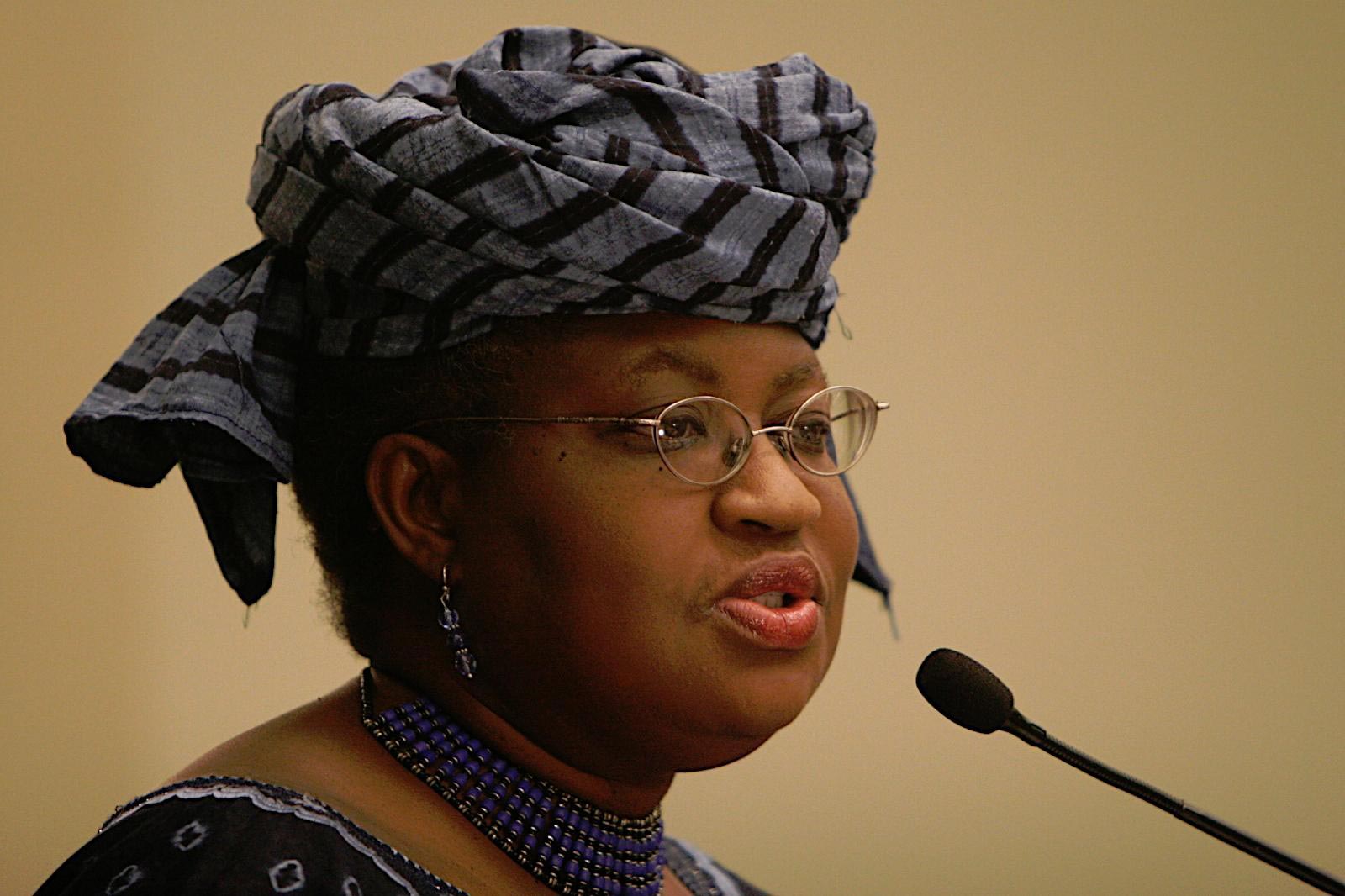The Coordinating Minister for the Economy and Minister of Finance, Dr. Ngozi Okonjo-Iweala, Thursday December 19th 2013 laid the budget of N4.6 trillion for the 2014 fiscal year separately before both chambers of the National Assembly.
The move ended months of stalemate and intrigues on the oil benchmark, which delayed the budget’s presentation since November 12 when President Goodluck Jonathan postponed the scheduled exercise over differences in the benchmark by both chambers of the National Assembly.
Under the 2014-2016 Medium Term Economic Framework and Fiscal Strategy Paper (MTEF/FSP), the executive had proposed $74 per barrel as the oil benchmark for next year’s budget, but the Senate and the House differed, proposing $76.5 and $79 respectively, until a conference of the National Assembly arrived at $77.5 at the beginning of the week.
The president had directed that Okonjo-Iweala present the budget to the legislature.
But contrary to the usual tradition when the president makes the presentation before a joint session of the National Assembly, yesterday, the finance minister laid the budget separately at different sessions in the two chambers.
The N4.6 trillion budget proposal for 2014 represents a decrease by six per cent, compared to the N4.987 trillion in the 2013 budget.
Of the N4.6 trillion total, N1.1 trillion was proposed for capital expenditure representing 27.29 per cent of the budget, down from 31.9 per cent in 2013.
This reflected the increased allocation to pensions as well as the high wage bill. Personnel cost increased slightly from N1.718 trillion in 2013 to N1.723 trillion in 2014.
Accordingly, the share of recurrent expenditure of N2.43 trillion of total spending was 72.71 per cent, down from N2.80 trillion in 2013, while the provision for SURE-P was N268.37 billion.
As part of the expenditure projections in the Appropriation Bill, the federal government estimated an aggregate expenditure (Net of SURE-P) of N4.642 trillion and statutory transfers of N399.7 billion
The provision for debt service was put at N712 billion, up from N591.8 billion in 2013.
However, the budget estimates showed the desire of the federal government to expand its revenue base as it proposed gross federally collectible revenue of N10.88 trillion in 2014.
A breakdown of gross federally collectible showed that oil and gas is expected to contribute N7.16 trillion, while gross federally collectible non-oil revenue was put at N3.29 trillion.
The federal government’s budgeted revenue was estimated at N3.73 trillion.
The country has suffered persistent revenue shortfalls due to oil theft and pipeline vandalism. This had resulted to a decline in the federation account allocation to the three tiers of government as well as the Excess Crude Account, which currently stands at $3.2 billion.
The 2014 budget is also estimating a fiscal deficit of N911.96 billion. The deficit as share of GDP was put at 1.90 per cent.
The budget estimates also put the new borrowing requirements in the 2014 fiscal year at N571 billion, a decrease from N577 billion in 2013.
But the total deductions, including cost of crude oil production, subsidy payments and domestic gas development, was estimated at N2.15 trillion, same as in 2013; just as subsidy payments were maintained at the 2013 level of N971.1 billion.
Speaking to the press after laying the budget, Okonjo-Iweala said the Appropriation Bill whose focus is on job creation, infrastructure development and a reduction in the cost of governance, was based on a benchmark oil price assumption of $77.5 per barrel; oil production of 2.3883mbpd; average exchange rate of N160 to a dollar; and a real Gross Domestic Product (GDP) growth rate of 6.75 per cent.
She said the budget estimates were designed to further drive the transformation agenda of the administration of President Goodluck Jonathan, enhance agriculture and support manufacturing.
“This is a budget for jobs and inclusive growths, the budget supports policies that would continue to push agriculture because we know that that is where most jobs are created, it would continue to push manufacturing so that our youths can have modern jobs,” the finance minister said.
Okonjo-Iweala, was accompanied to the National Assembly by her counterparts in the Ministry of Information, Mr. Labaran Maku; Transport, Senator Idris Umar; Niger Delta, Godsday Orubebe; Communications and Information Communications Technology, Mrs. Omobola Johnson; and Minister of State for Federal Capital Territory (FCT), Ms Jumoke Akinjide, as well as Director General of Budget Office, Bright Okogwu.
__________







